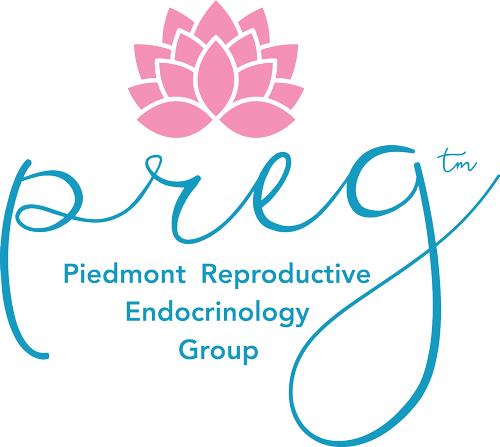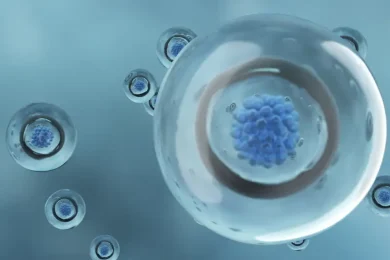Donor Sperm Utilization
Donor sperm may be utilized in both IUI and IVF-based treatment settings in the absence of a male partner for single and same-sex individuals, when a severe male factor prohibits effective utilization of the male partner’s sperm, or when doing so would increase the risk of having a child with an inherited genetic disorder. Donor sperm is typically obtained from federally regulated sperm banks and we’re here to provide pretreatment counseling and assist with the selection and ordering process. While more costly, complex, and time-consuming, utilization of sperm from a directed donor (known individual) is also an option.
Donor Egg IVF
Donor egg IVF represents a very effective option for men planning on utilizing a gestational carrier and women who may not be able to conceive using their own eggs due to prior unsuccessful fertility treatment, the risk of transmission of genetic disease, or severely diminished ovarian reserve as a consequence of the reproductive aging process, prior chemotherapy or ovarian surgery, or early menopause. Unless utilizing a gestational carrier, you must have a reassuring uterine evaluation and be 51 years of age or younger to be considered eligible as a donor egg recipient at PREG.
Donor Egg IVF Options at PREG
Egg donors may be unidentified or directed and donor eggs may be fresh or frozen. In all cases (unless declined in the case of a directed donor), egg donors available for consideration are in their 20s or early 30s, have no history of infertility, and completed an extensive process of eligibility determination strictly regulated by the FDA.
While we work with egg donor agencies, PREG’s size allows us to offer our own donor egg program to our patients, which is associated with significant cost savings. Our three-tiered program (which guarantees different number of eggs) is also aimed at reducing cost and making effective treatment available to more individuals and couples. You deserve to choose a donor who is an ideal fit. Should such a donor not be active in our program, we work with all major frozen donor egg banks which provide access to even more selection. We understand that this may seem complex, but step one is scheduling an appointment to learn more about donor egg IVF and all available options for fertility treatment at PREG.
Gestational Carrier Utilization
A gestational carrier is a woman who carries and delivers a baby for intended parents but has no genetic connection to the child. Embryos are created through IVF using the egg and sperm of the intended parents (or egg and/or sperm donors) and then transferred to the gestational carrier’s uterus. Utilization of a gestational carrier is an effective option for men or when women do not have a functional uterus or have a complicated obstetric history or when pregnancy would be anticipated to significantly complicate or worsen existing medical illness.
Utilization of a gestational carrier is procedurally, emotionally, and financially complex, but our experienced team is here to guide you every step of the way. Thorough and accurate medical, psychoeducational, and legal counseling is key, and your physician and third-party treatment coordinator will work together to ensure a smooth and compassionate experience throughout the journey. We also work closely with gestational carrier agencies and local attorneys who specialize in this aspect of family law, always with your parental rights and best interest in mind.
Embryo Donation
Embryo donation features the donation (either unidentified or directed) of embryos (product of egg + sperm) from other individuals or couples who have previously undergone IVF and completed their families yet still have frozen embryos available for transfer. Utilization of donated embryos can be an effective option for many types of infertility and we’re here to help you understand how certain factors influence the likelihood of success and how embryo donation compares to other available options. It is important to understand that the term “embryo adoption” is often used, but should be discouraged as this does not represent an adoptive process. At PREG, we have our own embryo donation program and also work with outside agencies.
Interested in Donating Embryos?
If you have completed your family through IVF yet still have embryos in storage and have an interest in helping others struggling with infertility, please contact us to learn more about our embryo donation program. Donated embryos are matched to other PREG patients who will be the unidentified recipients of the embryos. The identity of the donating patients will not be disclosed to the embryo recipients. If you are currently one of our patients you may contact your local PREG center who will be able to help.









